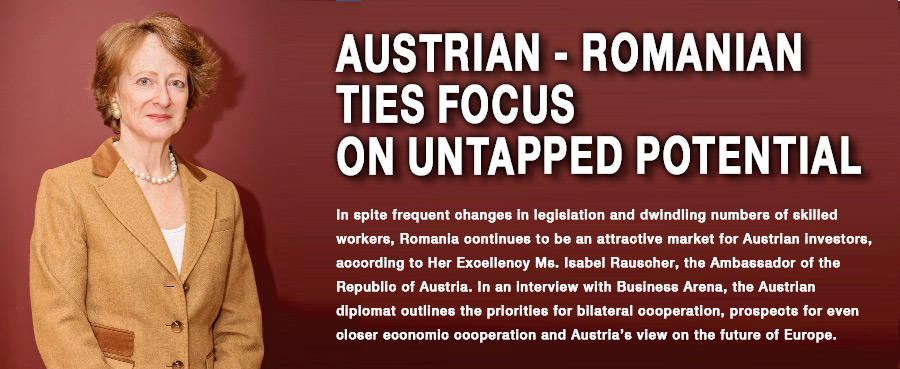The EU accession a
As we prepare to celebrate a decade of EU membership, I think it may be useful to stop for a moment to take stock and reflect upon what all these years have meant for us.
There is no doubt that in 1999 when the EU Commission recommended the start of the accession negotiations, the Romanian society in general and the Romanian economy in particular were ill prepared for such a leap forward. It is my gut feeling that if it would have not been for the bloody conflict in former Yugoslavia and the strategic needs of the Western powers in the region, Romania and Bulgaria would have been kept at the gates of Europe for at least another 20 years.
But, as the Romanians always had an historical ability or luck to make the best and take advantage out of its’ neighbors’ misfortunes, the EU countries accepted a long series of exceptions in key aria such as economic the justice system and fight against corruption, functional market economy, environment, child care, etc., a long list of ifs and buts to be mended in time in order to see Romania and Bulgaria in, and seal off the conflict within a cordon sanitaire.
What this meant for the Romanian state, I believe, can only be compared with the sudden modernization of the young Romanian state under the fantastic initiatives of the 1848 generation that swept to power a decade later: the radical change in the legislative framework, the incredible pace of industrialization and infrastructure, the setting up of new institutions, a dramatic change in values and social behavior and so on.
Undoubtedly, the Romanian economy has benefited the most as it has been connected to the main financial blood arteries of Europe while the vast and free EU economic market offered a huge export opportunities for the Romanian companies. In a decade, the Romanian exports have almost doubled, from 29 billion Euros to 54 billion euro, the GDP jumped 26%, from 126 billion euro to 160 billion euro, while the average gross income has doubled. Those who mourn at the grave of the former communist industry, I can tell them that from the ashes of the former energy-thirsty, stock-piling mammoths have risen new efficient and profit-driven companies – Romanian owned or managed by large multinationals - that are able to compete on equal footing with any Western company. Even in the dark days of the world economic meltdown between 2008 and 2010, the Romanian companies managed to keep it going due to several converging factors such as relatively cheap labor costs, production versatility and management inventiveness. Ten years ago it would have been unconceivable to see Romania having one of the highest yearly economic growth rate in Europe - almost 5% - inflation in the negative territory and an unemployment rate of just 6.4%.
Having said that, one should see the other side of the coin. As the European employment gates opened for Romanians, a constant and large flux of Romanians left the country in search for a better life elsewhere. The first waves of poorly skilled workers that looked for any employment opportunities has helped Romania keep a rather low unemployment rate despite the sharp economic downturn in 2009 and 2010. Furthermore, the “strawberry-pickers” have kept a steady influx of money pouring in the opposite direction, money that fed consumption and small investments going and thus keeping local businesses alive. From 2000 till now almost 70 billion Euros have been sent home by Romanians living abroad, making them the most important “foreign investor” in the Romanian economy.
However, as economic the general economic prospect improved, they were followed by highly skilled professionals like construction workers, engineers, doctors, IT specialists that deprived Romanian economy of essential skills and resources. To make things worse, the Romanian politicians do not sense any urgency in resetting the education principles upon which the schools, colleges and universities prepare the younger generation for the professional challenges the Romanian economy is facing right now.
It is believed that no less than 3 million Romanians are now living abroad but their influence back home is getting stronger. High speed internet link, the fastest in EU, allow for a constant stream of information that influence the decisions of those left behind from the mundane fashion trends to the all-important voting decisions or from demanding better customer rights to the desire to get more from the state institutions as a whole.
There is no doubt in my mind that the EU accession was one of the best and the luckiest things that have happened to the Romanian people in the last 100 of years and for those that challenge it, I dare then to visit Serbia or the Republic of Moldova and live there for a month but not in the comfort of a hotel and have a taste of the real life there. It makes for a sobering experience.
S-ar putea să îți placă:
COMENTARII:
Fii tu primul care comenteaza






